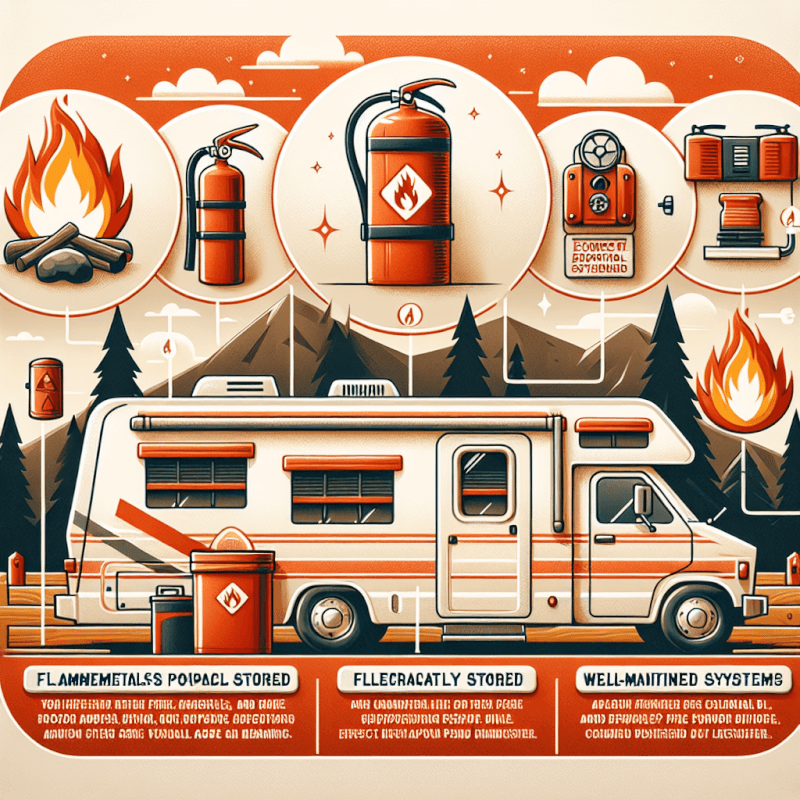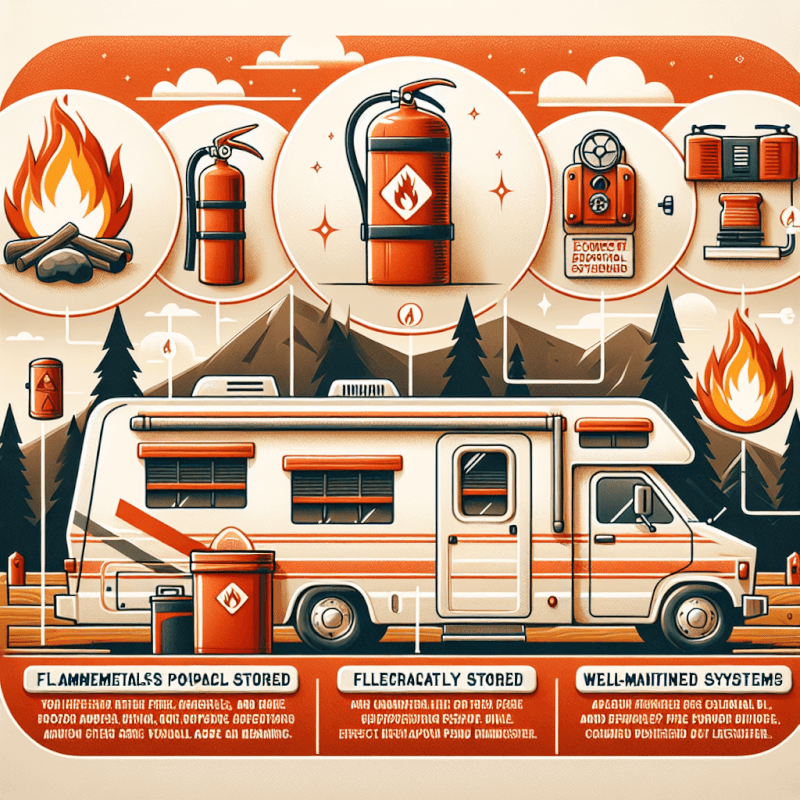If you’re an avid traveler or simply enjoy the freedom of the open road, owning a recreational vehicle (RV) can bring endless adventures. However, with that freedom comes the responsibility of ensuring the safety of yourself and your loved ones. Fire safety is of utmost importance when it comes to RVs, as they are susceptible to unique fire hazards. In this article, we will explore some practical steps you can take to protect your RV from the risk of fire and create a safe and enjoyable home away from home.
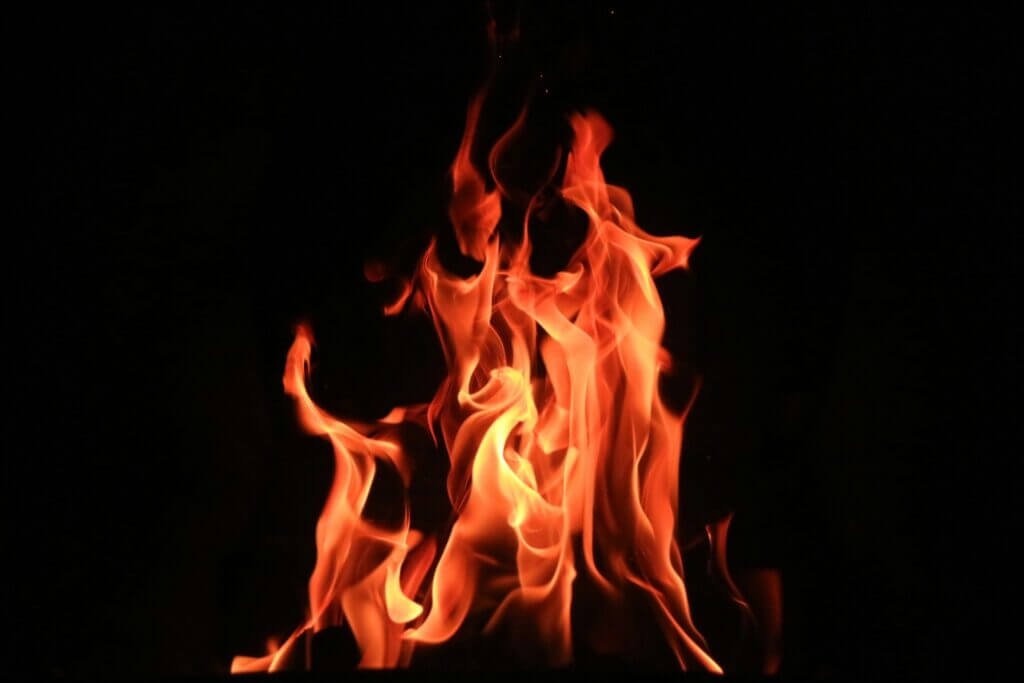
Fire Prevention Measures
Install Smoke Detectors
One of the most important fire prevention measures you can take in your RV is to install smoke detectors. These devices are designed to detect smoke and alert you to any potential fire hazards. Make sure to install smoke detectors in key areas of your RV, such as the kitchen, bedroom, and living area. Test them regularly to ensure they are functioning properly and replace the batteries as needed.
Keep a Fire Extinguisher
Having a fire extinguisher readily available is crucial for fire safety in your RV. Make sure to choose the right type of extinguisher for your RV and place it in an easily accessible location. Learn how to properly use a fire extinguisher and familiarize yourself with the different types of fires it can effectively tackle. Remember, having a fire extinguisher within reach can make all the difference in quickly extinguishing a small fire before it becomes a major hazard.
Inspect Electrical Wiring Regularly
Inspecting the electrical wiring in your RV on a regular basis is essential for fire prevention. Over time, wires can become frayed or damaged, posing a significant fire risk. Check for any signs of wear, such as exposed wires or melted insulation. If you notice any issues, have them repaired by a professional electrician immediately to ensure the safety of your RV.
Maintain and Clean Cooking Appliances
Proper maintenance and cleanliness of your cooking appliances are vital for fire prevention. Grease and food particles can accumulate in ovens, stoves, and microwaves, increasing the risk of a fire hazard. Regularly clean your appliances to prevent the buildup of flammable materials. Additionally, ensure that your cooking appliances are in good working condition, and if you notice any issues, have them repaired or replaced promptly.
Avoid Overloading Electrical Circuits
Overloading electrical circuits is a common mistake that can lead to electrical fires. Be mindful of the electrical load you place on each circuit, as excessive use can cause overheating and potentially start a fire. Spread out your electrical devices across various circuits and avoid using multiple high-wattage appliances simultaneously.
Proper Storage and Handling
Store Flammable Materials Safely
Properly storing flammable materials in your RV is crucial for fire safety. Keep all flammable liquids, such as gasoline, cleaning solvents, and propane tanks, in tightly sealed containers that are specifically designed for their storage. Store them in well-ventilated, cool areas away from heat sources or direct sunlight. Remember to never store flammable materials in your sleeping area or near any ignition sources.
Handle Propane Tanks with Care
Propane is commonly used in RVs for cooking, heating, and other essential functions. However, mishandling propane tanks can result in dangerous fires. Always handle propane tanks with extreme caution and follow the manufacturer’s instructions for proper usage. Regularly check for any signs of leakage, such as a distinct smell or hissing sound, and address any issues immediately. When not in use, store the propane tanks upright and outside your RV to minimize the risk of a fire hazard.
Keep Candles and Open Flames Secure
Using candles or any open flames inside your RV can be a charming way to create a cozy atmosphere. However, it’s crucial to use these sources of fire carefully. Always keep candles and open flames in secure holders on stable surfaces and away from any flammable objects or materials. Never leave them unattended, and ensure they are completely extinguished before leaving your RV or going to sleep.
Dispose of Ashes Properly
If your RV has a fireplace or a stove with a chimney, proper disposal of ashes is essential. Allow the ashes to cool completely before removing them and place them in a metal container specifically designed for ash disposal. Avoid using flammable or combustible containers for ash storage. Once the ashes are safely stored, dispose of them in an appropriate manner, following campground regulations or local ordinances.
Emergency Preparedness
Create an Emergency Plan
Having an emergency plan in place is crucial for ensuring your safety in the event of a fire. Sit down with your travel companions and establish a plan that includes escape routes, designated meeting points, and emergency contact numbers. Make sure everyone understands and practices the plan regularly. Review and update the plan as needed to account for any changes in your RV or travel arrangements.
Know the Location of Fire Exits
Familiarize yourself with the layout of your RV and locate all the fire exits. Understanding the locations of all possible escape routes can save precious seconds in the event of a fire. Ensure that these exits are clear of any obstructions and easily accessible at all times. Consider creating a map of your RV with the fire exits clearly marked, and place it in a prominent location where it can be easily seen and referenced if needed.
Practice Fire Drills
Regularly practicing fire drills in your RV can help ensure that everyone knows what to do in case of an emergency. Set off the smoke alarms and simulate different fire scenarios to test your emergency plan. Practice evacuating the RV quickly and safely, using the designated escape routes. By doing so, you will build confidence and muscle memory, making it easier to respond effectively in a real emergency situation.
Keep Emergency Contact Information
It’s important to keep a list of emergency contact information readily available in your RV. Include important phone numbers, such as local emergency services, your insurance company, and any other relevant contacts. Store this information in a easily accessible location, such as on the refrigerator or near the phone. In times of high stress, having this information at hand can help you act swiftly and efficiently.
Carry a Personal Safety Kit
Prepare a personal safety kit and keep it easily accessible in your RV. This kit should include essential items, such as a first aid kit, flashlight, extra batteries, a whistle, and a fire-resistant blanket. These items can prove indispensable in situations where you need to quickly respond to a fire or assist others.
Regular Maintenance
Check for Gas Leaks
Regularly checking for gas leaks is crucial for fire safety in your RV. Propane leaks can be highly dangerous and increase the risk of a fire hazard. Invest in a propane gas detector and follow the manufacturer’s instructions to test for leaks regularly. If you detect a gas leak or notice a strong propane smell, immediately shut off the gas supply, ventilate the area, and seek professional assistance to fix the issue.
Test Smoke Detectors and Fire Alarms
Testing your smoke detectors and fire alarms on a regular basis is essential for their proper function. Press the test button to ensure that the alarms are loud and audible throughout your RV. If you find any issues, such as weak or non-functioning alarms, replace the batteries or the devices themselves as soon as possible. Neglecting to regularly test your smoke detectors and fire alarms can leave you and your RV vulnerable to fire risks.
Inspect and Clean Chimney and Vents
If your RV has a fireplace or any other heating system with a chimney or vents, regular inspection and cleaning are necessary. Over time, soot, debris, or bird nests can accumulate, increasing the risk of a chimney or vent fire. Hire a professional chimney sweep to inspect and clean your chimney and vents annually. This preventive measure will help ensure that harmful flammable materials do not accumulate, reducing the risk of a potential fire hazard.
Replace Damaged Electrical Cords
Damaged electrical cords can cause electrical fires, making it essential to regularly inspect and replace any cords that show signs of wear or damage. Frayed wires, exposed conductors, or broken plugs are all warning signs of potential problems. Replace damaged cords promptly with new ones that meet safety standards. Taking this simple step can significantly reduce the risk of electrical fires in your RV.
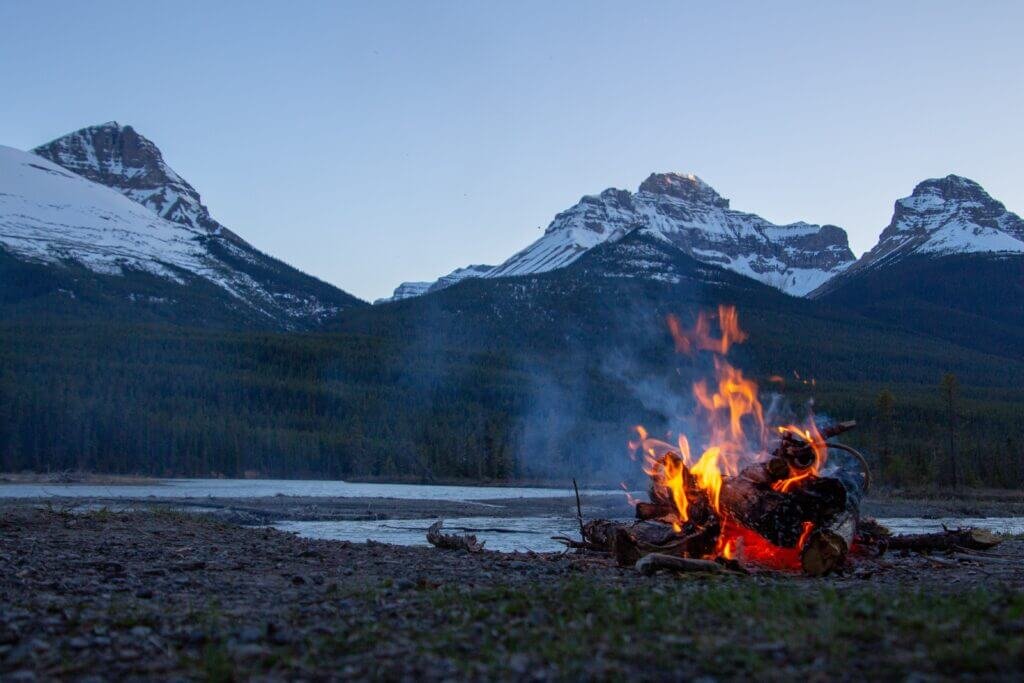
Safe Campfire Practices
Follow Campground Rules and Regulations
When camping, it’s important to follow all campground rules and regulations regarding campfires. These rules are in place to ensure the safety of everyone in the camping area. Familiarize yourself with the specific rules of the campground you are staying at and strictly adhere to them. Respect any fire restrictions that may be in place due to weather conditions, as these restrictions are designed to prevent wildfires.
Use a Fire Pit or Fire Ring
When building a campfire, always use a designated fire pit or fire ring. These designated areas are designed to contain the fire and minimize the risk of it spreading. Avoid building fires directly on the ground or near any combustible materials, such as low-hanging branches or dry grass. By using a fire pit or fire ring, you can enjoy your campfire safely and minimize the risk of a fire spreading uncontrollably.
Keep a Water Source Nearby
Never leave a campfire unattended and always keep a water source nearby. Whether it’s a bucket of water, a water hose, or a fire extinguisher, having a readily available water source can help you quickly extinguish the fire in case it starts spreading or poses a risk. Regularly douse the fire with water to ensure it is completely out before leaving the area or going to bed.
Extinguish the Fire Completely
Properly extinguishing your campfire is crucial for fire safety. When you are ready to extinguish the fire, pour water over the flames and stir the embers with a shovel or stick. Continue adding water and stirring until you are certain that all the embers are fully extinguished and cool to the touch. Never leave a smoldering fire unattended, as even the smallest ember can reignite and start a potential wildfire.
Educate Yourself
Take a Fire Safety Course for RV Owners
Educating yourself about fire safety for RV owners can greatly enhance your awareness and preparedness. Consider taking a fire safety course specifically designed for RV owners. These courses cover topics such as fire prevention measures, emergency procedures, and safe handling of RV appliances. By becoming well-informed, you can better protect yourself, your RV, and those around you from fire risks.
Read the RV Owner’s Manual
The RV owner’s manual is a valuable resource that provides important information about the safe operation and maintenance of your specific RV model. Take the time to thoroughly read and familiarize yourself with the manual, paying close attention to sections regarding fire safety. Understanding how to safely operate the electrical, heating, and cooking systems in your RV can help prevent potential fire hazards.
Learn Basic Fire Safety Techniques
Investing time into learning basic fire safety techniques can significantly increase your ability to respond effectively in emergency situations. Familiarize yourself with techniques such as Stop, Drop, and Roll, which can help if your clothes catch fire, and how to safely use a fire extinguisher. Knowledge of these techniques empowers you to take immediate action during a fire and can potentially save lives.
Stay Informed about Fire Safety Regulations
Fire safety regulations can vary depending on your location and the type of RV you own. Stay informed about any regulations or guidelines related to fire safety in your area or the areas you plan to visit. Follow any updates or changes to these regulations and incorporate them into your fire safety plan. Staying informed ensures that you are consistently taking the appropriate measures to protect yourself and others from fire risks.
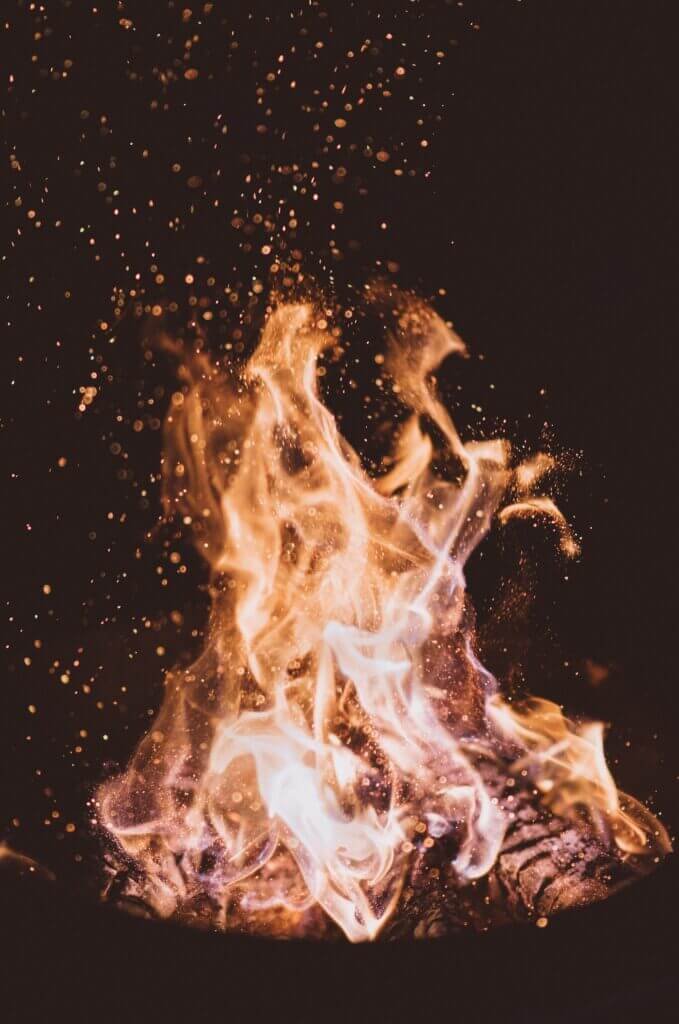
Awareness and Monitoring
Be Mindful of Fire Hazards
Practicing mindfulness and being aware of fire hazards in and around your RV can help preempt potential disasters. Keep an eye out for common fire hazards, such as frayed wires, overloaded electrical outlets, or combustible materials near heat sources. Regularly inspect your RV for any signs of fire risks and address them immediately to minimize the likelihood of a fire breaking out.
Monitor Electrical Systems Regularly
Regular monitoring of your RV’s electrical systems is an important part of fire prevention. Periodically check your circuit breakers, fuses, and electrical connections for signs of damage or overheating. If you notice any issues, have them repaired by a professional electrician. By maintaining a proactive approach and conducting regular electrical system checks, you can identify and address potential fire hazards before they become a serious threat.
Stay Alert and Watch for Warning Signs
Being alert and watching for warning signs is essential for fire safety in your RV. If you notice unusual smells, sparks, smoke, or flickering lights, take immediate action. Investigate the source of the issue and address it promptly. Ignoring warning signs can lead to dangerous fire situations. Trust your instincts and always err on the side of caution when it comes to fire safety.
Keep a Fire Watch During High-Risk Activities
During high-risk activities, such as cooking or using heating devices, maintaining a fire watch is crucial. Have a designated person actively monitoring the area and potential fire hazards while these activities are taking place. This person should be prepared to respond swiftly in case of an emergency. By closely monitoring these high-risk activities, you can catch potential fire hazards before they escalate into dangerous situations.
Proper Ventilation
Open Windows and Roof Vents
Proper ventilation is essential for fire safety in your RV. Open windows and roof vents to encourage the flow of fresh air and minimize the buildup of heat and fumes. This is particularly important when cooking or using appliances that generate heat or produce gases. Adequate ventilation not only improves air quality but also helps prevent the risk of a fire hazard by reducing the potential for flammable fumes to accumulate.
Use Exhaust Fans When Cooking
Using exhaust fans while cooking is a simple yet effective fire safety measure. These fans help remove smoke, steam, and cooking odors from your RV, reducing the risk of fire hazards. Make it a habit to turn on the exhaust fan whenever you are cooking, especially when using the stove or oven. The fan helps keep the air clear and prevents the accumulation of grease, reducing the potential for a fire to start.
Ensure Propane Appliances have Proper Ventilation
Propane appliances, such as stoves, furnaces, and water heaters, require proper ventilation to safely operate. Ensure that your RV’s propane appliances have adequate ventilation as specified by the manufacturer. Improper ventilation can lead to carbon monoxide buildup or gas leaks, increasing the risk of fire or even carbon monoxide poisoning. Regularly inspect the vents and ensure they are clean and functioning properly.
Install Carbon Monoxide Detectors
Carbon monoxide is a silent, odorless gas that can be fatal if not detected early. Install carbon monoxide detectors in your RV, especially in sleeping areas. These detectors can alert you to the presence of carbon monoxide and allow you to take immediate action. Test the detectors regularly and replace the batteries as necessary to ensure their proper functionality. Carbon monoxide detectors are a crucial safety measure that can potentially save lives.
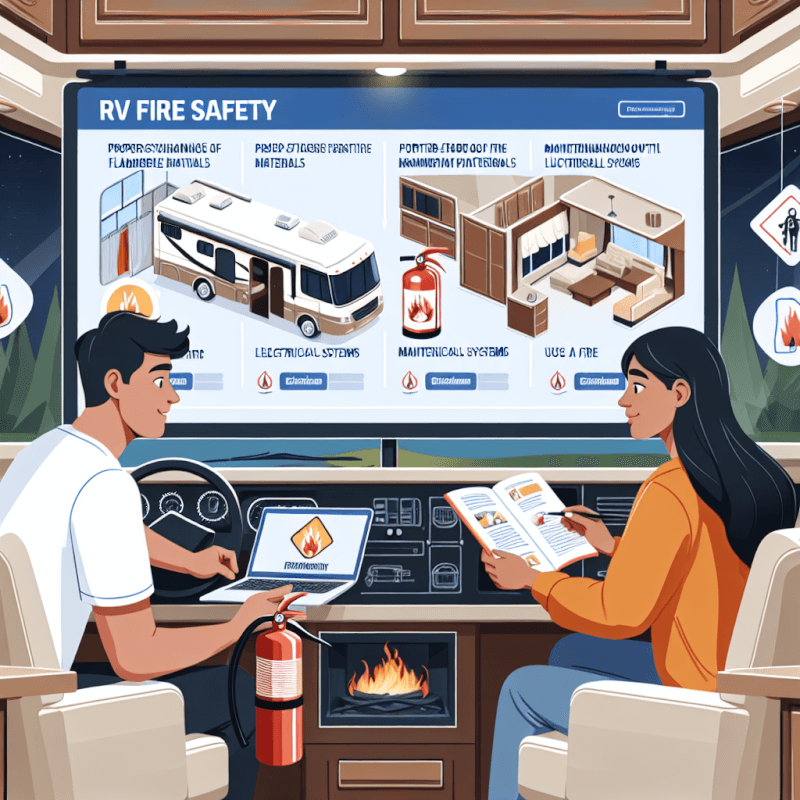
Secure Electrical Connections
Use Good Quality Extension Cords
When using extension cords in your RV, it’s important to use good quality cords that are suitable for the intended load. Cheap or damaged extension cords can overheat and pose a fire hazard. Invest in high-quality extension cords that are appropriate for the electrical devices you are connecting. Regularly inspect the cords for any signs of wear or damage and replace them if needed to maintain a safe electrical connection.
Avoid Overloading Electrical Outlets
Overloading electrical outlets is a fire risk that can easily be avoided. Use multiple outlets throughout your RV to distribute the electrical load evenly. Avoid plugging multiple high-wattage devices into a single outlet and never use extension cords with power strips or surge protectors. By avoiding overloading outlets, you reduce the risk of overheating and electrical malfunctions that can lead to fires.
Protect Electrical Connections from Moisture
Moisture can corrode electrical connections and increase the risk of electrical fires. Protect against moisture by using weatherproof covers on all outdoor outlets and connections. Be diligent in checking for water leaks or any signs of moisture near electrical components, such as light fixtures or power outlets. Promptly address any issues to prevent potential fire hazards caused by water damage to electrical systems.
Inspect and Repair Damaged Wires
Damaged wires pose a significant fire hazard and must be promptly inspected and repaired. Regularly inspect your RV’s electrical wires for any signs of wear, such as frayed or exposed wires. Address any issues by repairing or replacing the damaged wires as soon as possible. Don’t attempt to repair electrical wiring yourself unless you are a trained electrician. Consulting a professional ensures the repairs are done safely and to code.
Secure Gas Connections
Check for Propane Leaks Regularly
Regularly checking for propane leaks is essential for fire safety in your RV. Propane, when mixed with air, can become highly flammable and pose a serious fire hazard. Use a propane leak detector or a solution of soap and water to check for any leaks around the propane tank and connections. If you detect a leak, shut off the gas supply immediately, ventilate the area, and seek professional assistance to repair the issue.
Use a Professional for Gas Line Installations
Proper installation of gas lines is crucial for fire safety in your RV. When installing or modifying gas lines, always hire a qualified professional who is experienced in RV gas system installations. Improperly installed gas lines can result in leaks or other dangerous situations. By relying on a professional for gas line installations, you can ensure the safety and integrity of your RV’s gas system.
Turn Off Gas Supply When Not in Use
When your RV is not in use or when there is no need for gas appliances, it’s important to turn off the gas supply. Shut off the gas valve at the propane tank to prevent any potential leaks or fire hazards. Make it a habit to routinely check the gas supply valve before leaving your RV or going to bed. By turning off the gas supply, you eliminate the risk of gas leaks and potential fires.
Store Propane Tanks Upright and Outside
Propane tanks should always be stored upright and outside your RV. Never store propane tanks inside your RV or any enclosed space. Keep them in a well-ventilated area, away from direct sunlight and ignition sources. Secure them in an upright position to prevent accidental tipping or damage. Proper storage of propane tanks reduces the risk of leaks or fires caused by mishandling or improper storage.
By following these fire safety measures and recommendations, you can significantly reduce the risk of fire hazards in your RV. Remember, fire prevention, emergency preparedness, regular maintenance, and proper handling of flammable materials are all essential aspects of ensuring the safety of yourself, your loved ones, and your RV. Stay vigilant, take proactive steps, and enjoy your RV adventures with peace of mind knowing you’ve taken the necessary precautions to prevent fires.
